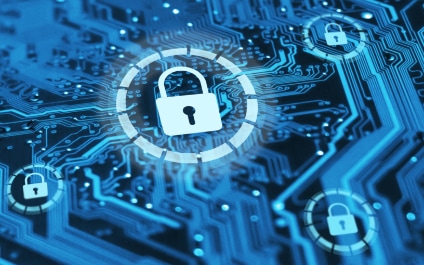You’ve heard of the classic phishing attack where cybercriminals send rogue emails purporting to be from legitimate entities such as large corporations and government agencies. You may have also heard of hackers using voice calls and text messages to victimize more unsuspecting users.
What is lateral phishing, and why should you be concerned?
F1 Solutions Briefing on the CMMC (Cyber Security Maturity Model Certification) 2020 Roll Out
Topics to include in your next employee cybersecurity awareness training session

In a world where technology is rapidly evolving and cybercriminals are constantly looking for new ways to steal data from unsuspecting victims, cybersecurity awareness has never been more important. You never know when your employees will come across phishing or malware attacks, so it's a good idea to regularly conduct security training sessions.
Your employees are the weakest link in your business’s cybersecurity

It takes just one click on a rogue link, or a press of the Enter key for your company’s sensitive data to be stolen by hackers, and use the information for identity and financial theft. And it’s not surprising why these events happen so suddenly — your employees are susceptible to security breaches.
5 Things you can do to ensure regulatory compliance for your business

There aren’t many business leaders who would say they like regulatory compliance and all the high expenses and reams of red tape that come with it. But there’s also no denying that it’s the glue that holds business operations together in an age when they’ve become so reliant on digital data and, therefore, potential targets of the next big cyberattack.
What to do if you suspect an email is a phishing scam

Phishing is a method of stealing account information such as login credentials and credit card details by pretending to be a trusted individual or firm in an email and other electronic communiques — remains popular among cybercriminals. According to Verizon’s 2019 Data Breach Investigations Report (DBIR), phishing was responsible for 32% of confirmed breaches as well as 78% of cyber-espionage incidents in 2018.
Everyone is vulnerable to phishing attacks, therefore it’s important to know what to do in case you or your employees encounter an email that might be a scam.
The best email security tips you need to know

Email will always be an essential communication and collaboration medium in your business. However, it also enables cybercriminals to devise sophisticated phishing attacks.
Phishing is the fraudulent practice of sending emails claiming to be a legitimate entity such as a trusted company or an individual in order to acquire login credentials and steal personal and financial information.
Confusing technical jargon businesses should be familiar with

It’s never easy learning about technology, and its rapid development isn’t helping businesses understand it any further. However, it’s important for everyone in your organization to be familiar with tech jargon. Once you learn the language, you can take advantage of technology better to not only keep a competitive edge, but also ensure maximum profits, high employee morale, and happier customers.
Disaster planning basics your business should know
5 Ways to increase your IT maturity level

Today, more than ever, business performance depends heavily on a company’s IT maturity level, which refers to a set of technology-driven capabilities that match the organization’s ability to achieve desired outcomes. Fortunately, that doesn’t require spending on the latest hardware and bespoke software solutions that break the bank.




